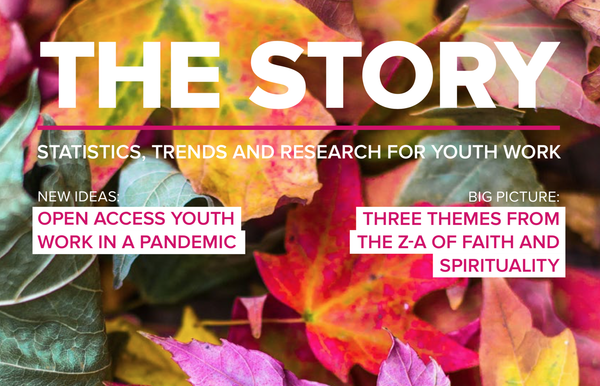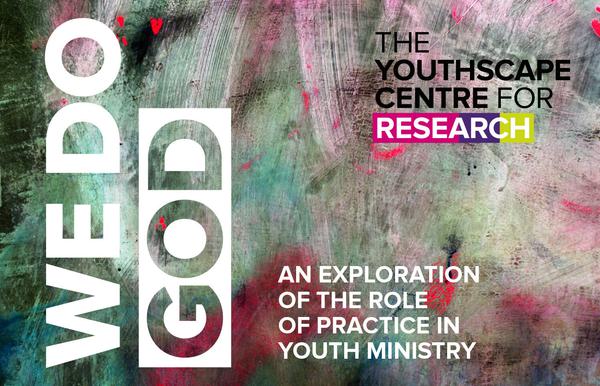Youth for Christ’s latest research explores the faith & spirituality of 1001 11-18-year-olds across the UK. Lucie Shuker breaks down some of its findings.
Youth for Christ have released the final report in their research trilogy, which explores faith and spirituality in the lives of 1001 11-18-year-olds across the UK. The report has lots of fascinating stats and helpful commentary, so we’ve just pulled out three themes to whet your appetite. Together these reports have given us some fantastic new evidence that helps us understand the young people we work with.
1. I don't know
When it comes to God, faith and spirituality, lots of young people just aren’t sure what they think. Here are some of the big questions to which the number one response from young people was ‘I don’t know’. [1]
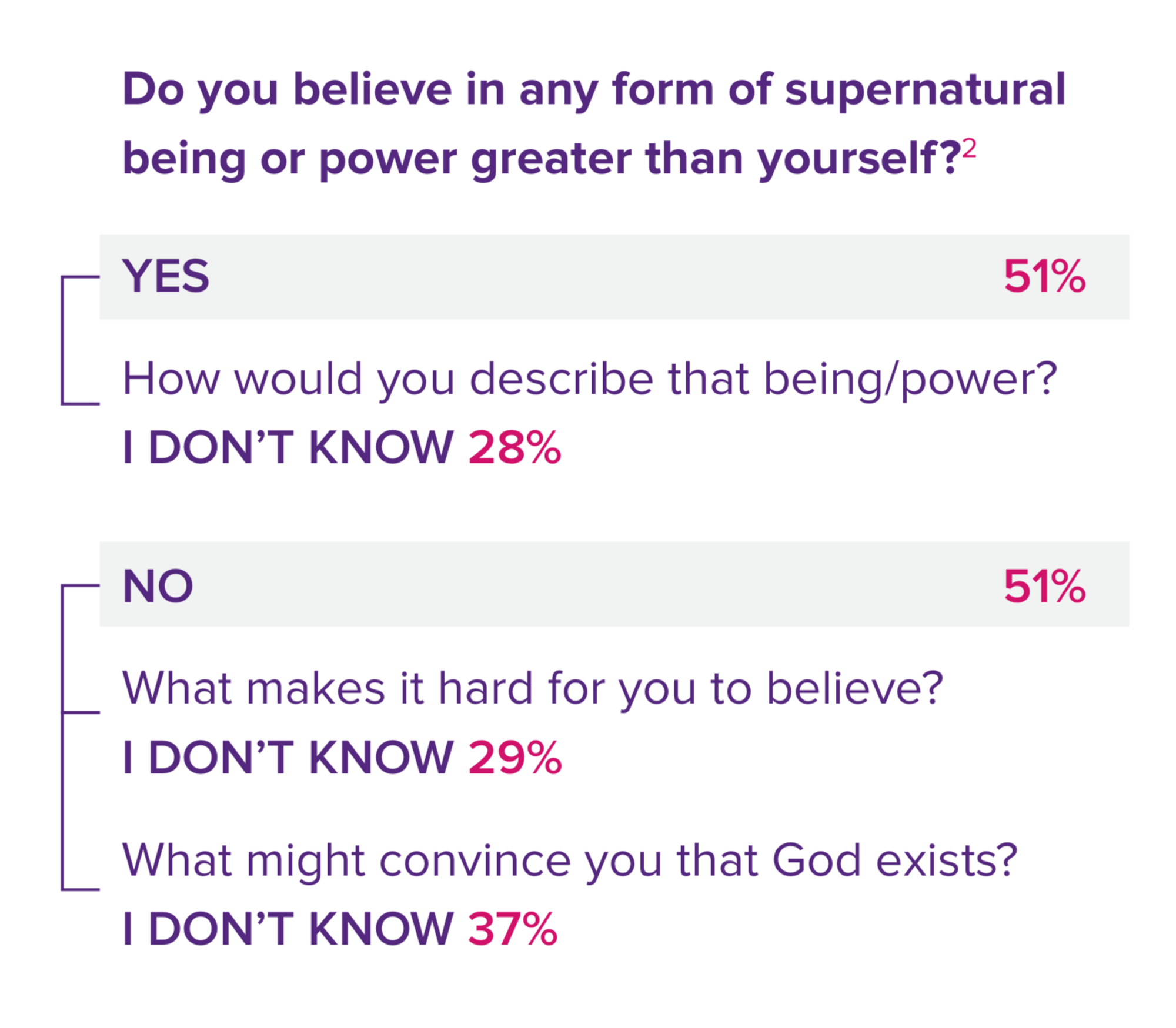
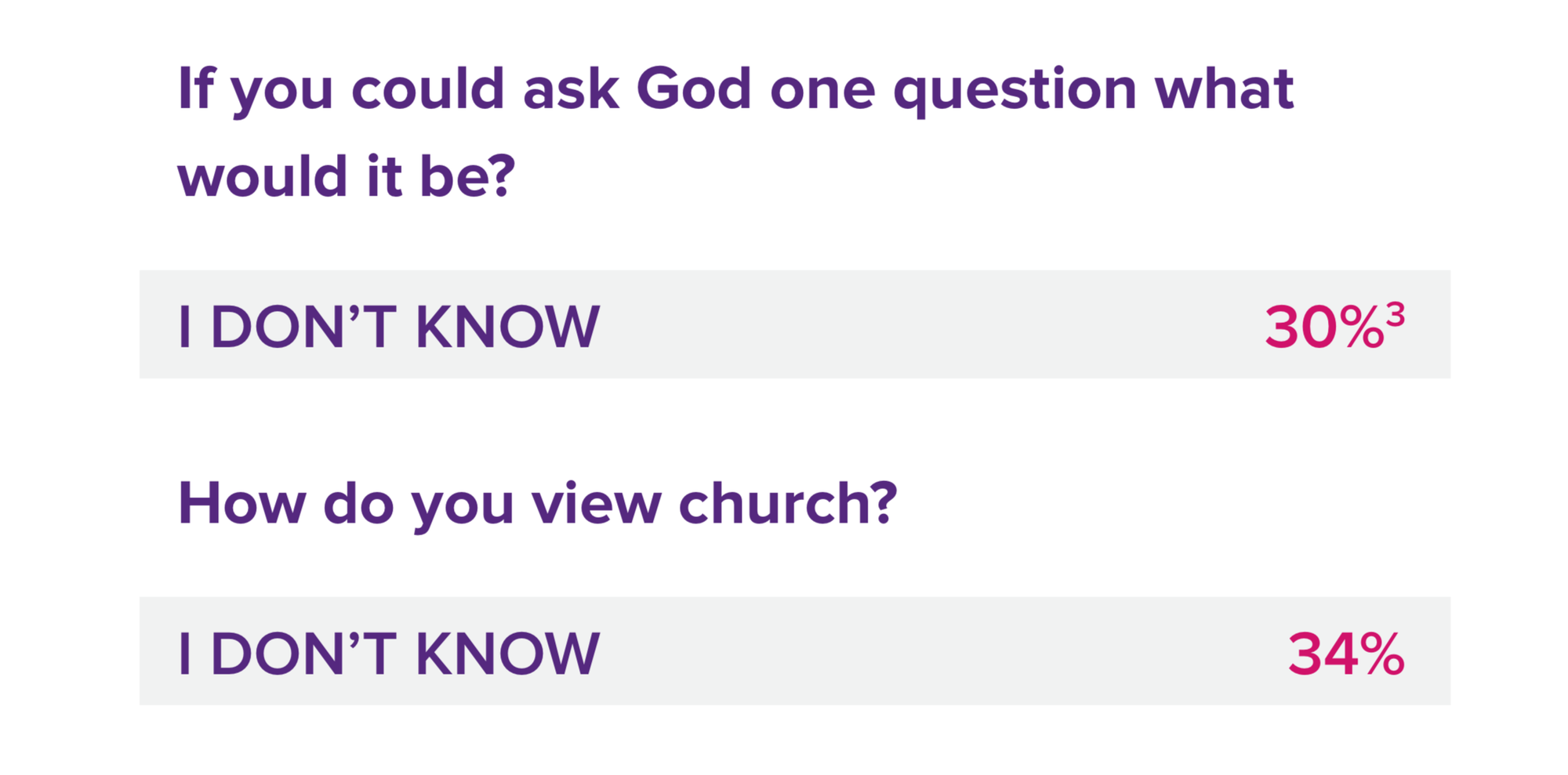
Although it might seem strange to highlight these responses, I think we should pay attention to this. Other studies have suggested that religious faith is not present in the foreground of young people’s mind, culture and experience, and yet 65% of young people in the survey said they thought about God and spirituality at least once a month and 46% at least once a week. If they are thinking about God, it appears that lots of young people aren’t coming to any conclusions and need a story to react to, or a structure to hang their thoughts on and make sense of it all.
2. God loves me, but Jesus might not be real
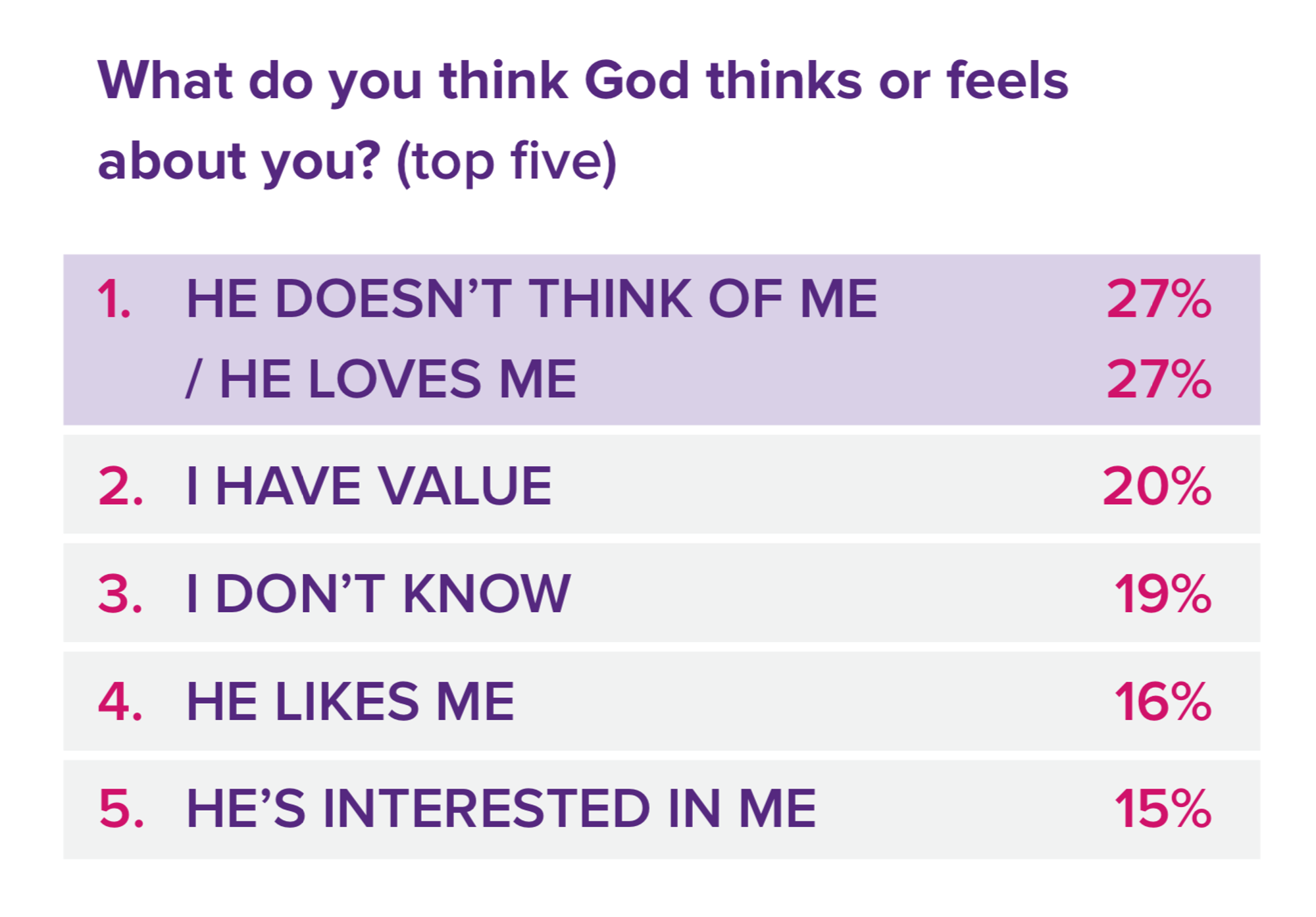
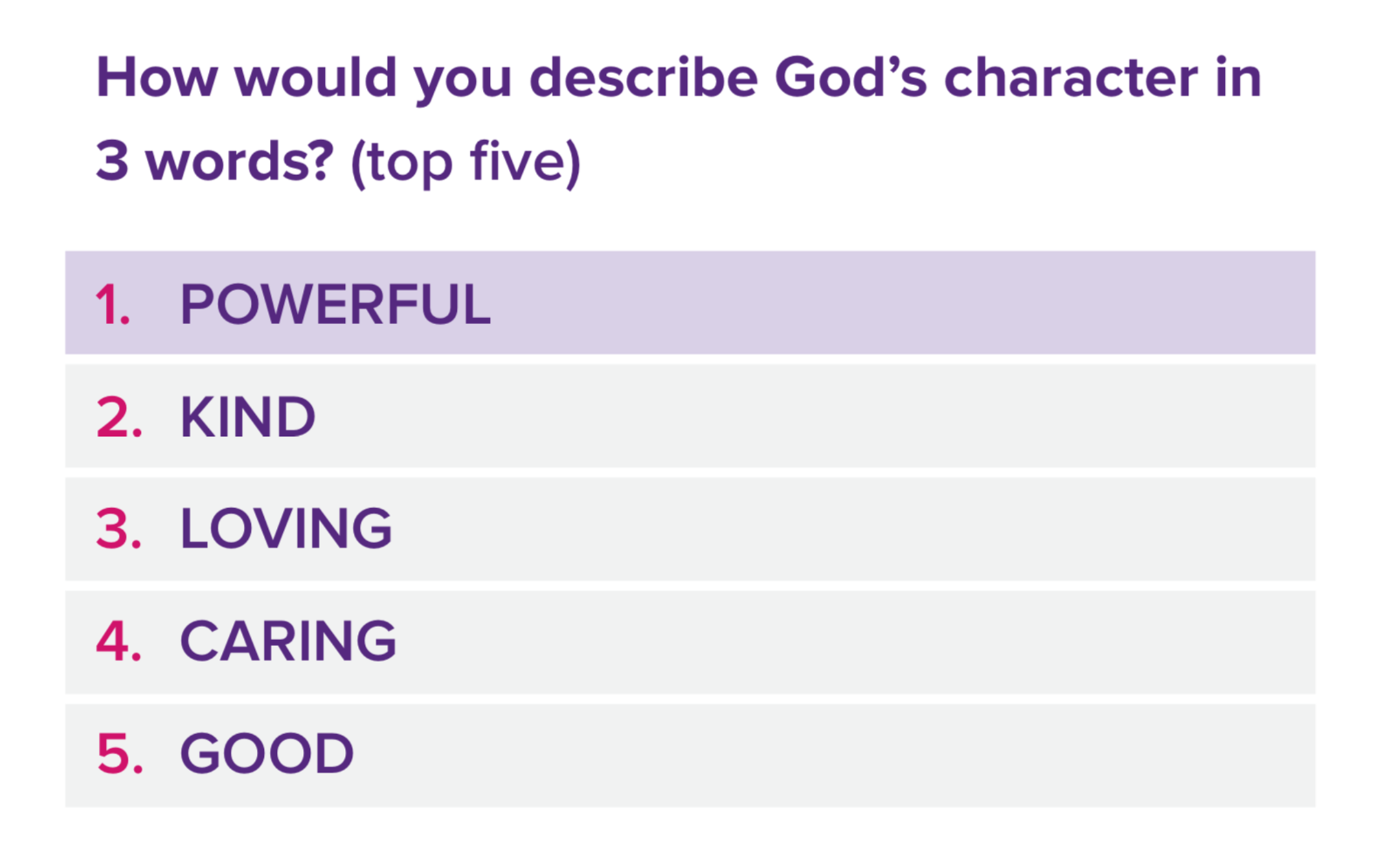
It’s been quite a while since researchers Smith and Denton gave us the term ‘Moralistic Therapeutic Deism’, a spiritual worldview in which God is a benign but absent presence who wants us to be nice to each other. These stats reflect the ‘therapeutic’ element of this worldview but suggest that God is also perceived as actively warm and interested in many young people’s lives. This is particularly interesting in light of the fact that only 53% thought Jesus was a real historical person and of these, only 25% thought he was God. God may be culturally rehabilitated from the idea of an angry old man in the sky, but that doesn’t mean teenagers understand His love as having anything to do with Jesus.
3. I haven't had a spiritual experience
There were only two questions where over three-quarters of young people responded the same way, and they both related to direct spiritual experience, rather than belief.
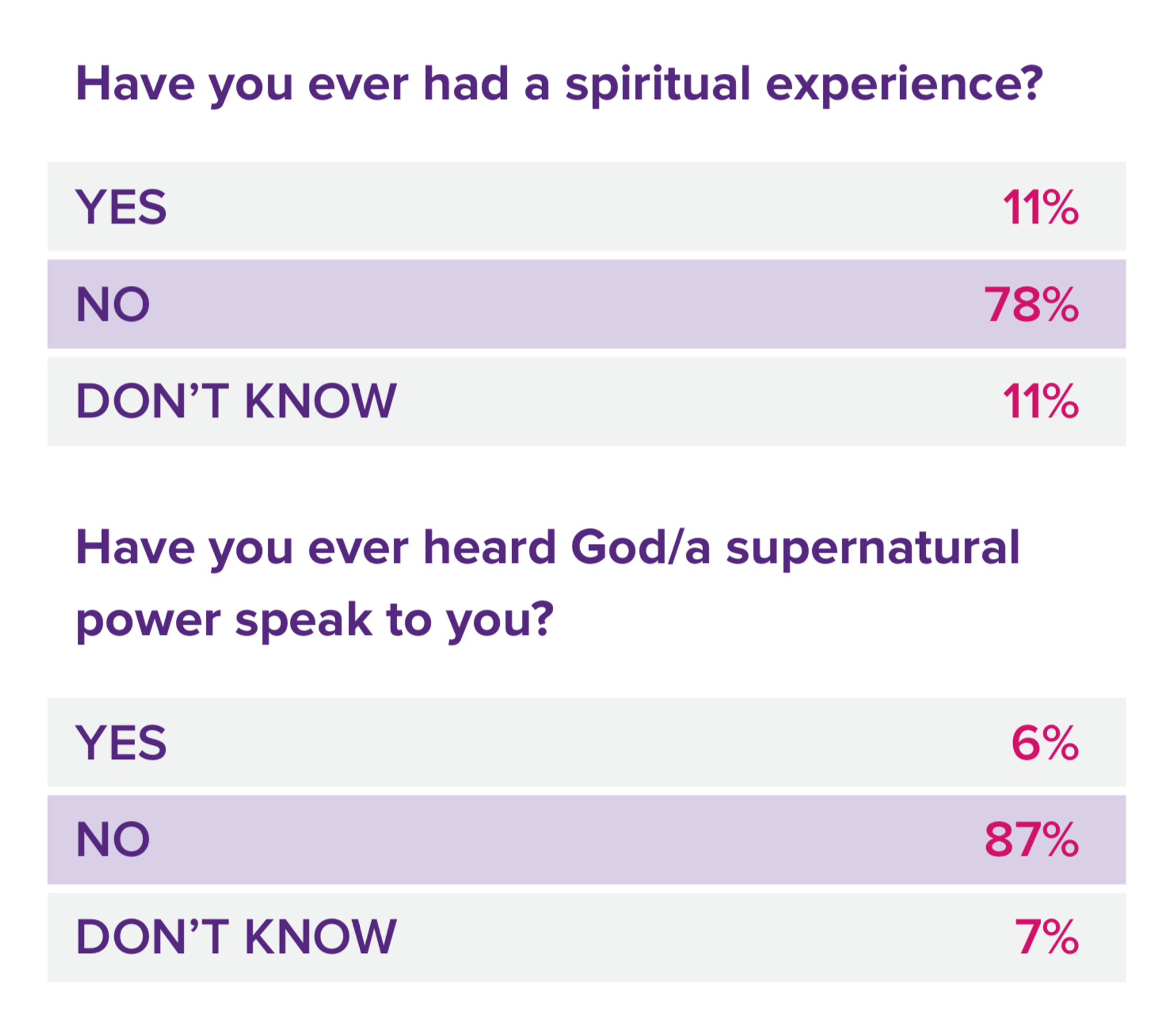
It’s fascinating that so few young people perceive themselves to have had a spiritual experience. This reflects the squarely secular culture most teenagers inhabit, where innate ‘formative’ spirituality is rarely acknowledged, let alone becoming ‘transformative’ spirituality. It may also reflect an association of the word ‘spiritual’ with ghosts and the paranormal in the research. In our No Questions Asked research, young people often didn’t know what the word ‘spiritual’ meant, and it was only through the interview itself that some recognised this dimension of their experience for the first time. Our more recent report We do God picked up the same theme, emphasising the missional role of inviting young people to experience God and making spaces for reflection so that they are able to make sense of those experiences too.
To get into the stats yourself, visit yfc.co.uk/faithandspirituality
This article was originally published in Vol 15 of our research quarterly The Story, which you can see more of here.
[1] Answers were split across lots of different responses (including those in young people's own words) which is why these percentages seem small.
[2] The other 17% said ‘I don’t know’
[3] This was followed a range of questions around suffering and evil, which if grouped together would add up to 37% making it a very significant theme, which is discussed in the report.








